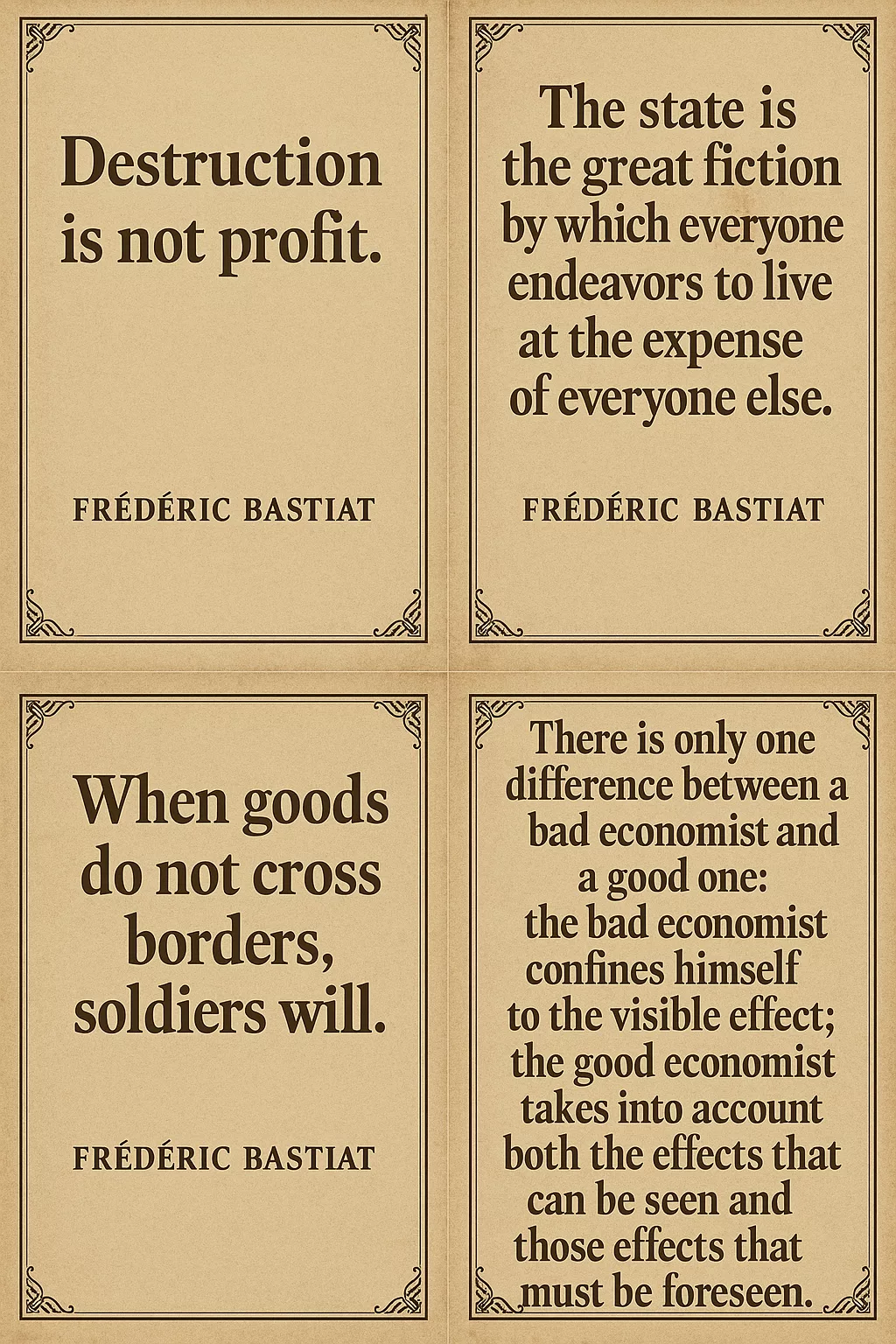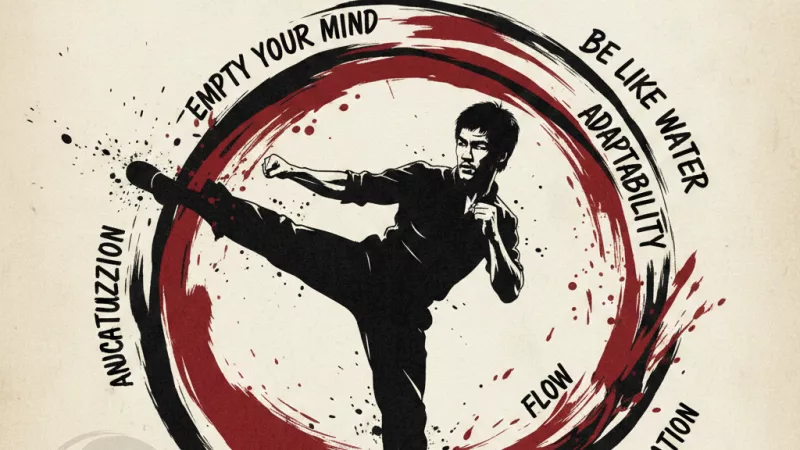Frédéric Bastiat: The Economist Who Saw What Others Missed

The Economist Who Saw What Others Missed
Frédéric Bastiat (1801–1850) was a French economist, writer, and politician whose ideas still shape modern debates about government, freedom, taxes, and everyday economic choices.
Even if you’ve never heard his name, you’ve almost certainly felt the impact of his work.
Bastiat wrote with simple, clear logic—no academic fog, no complicated math, no ivory-tower attitude.
He believed economics was for and about real people, and his goal was to help ordinary citizens see how policies actually affect their lives.
More than 170 years later, Bastiat’s ideas feel surprisingly fresh.
In an age of rising prices, government expansion, and debates about welfare, his message hits home.
“The Seen and the Unseen” — Bastiat’s Most Important Lesson
Bastiat’s greatest insight can be summed up in one line:
“There is only one difference between a bad economist and a good one: the bad economist confines himself to the visible effect; the good economist takes into account both the effects that can be seen and those effects that must be foreseen.”
This idea—the seen and the unseen—remains central to economics today. Bastiat argued that when governments pass a law or spend money, most people see only the obvious effect: the new building, the new jobs, or the check in the mail.
But they rarely see the hidden cost—the jobs never created, the money taxpayers didn’t get to keep, the opportunities quietly destroyed.
This concept is incredibly relevant in 2025.
When a city hands out subsidies to a big corporation, we all see the ribbon-cutting ceremony.
We don’t see the small businesses that close because taxes or rents rise.
When the government promises “free” programs, we see the benefit—but not the taxes, inflation, or debt that follow.
Bastiat forces us to zoom out and see the full picture.
The Broken Window Fallacy
Bastiat’s most famous story is the “broken window” example. A kid breaks a shopkeeper’s window, and onlookers claim it’s actually good for the economy because it creates work for the glazier.
Bastiat says: not so fast.
Sure, the glazier gets paid. That’s the seen.
But the shopkeeper now has less money to spend elsewhere. Maybe he planned to buy new shoes or upgrade equipment. Those benefits are unseen—because the purchase never happens.
“Destruction is not profit.”
It’s one of the simplest, sharpest economic lessons ever written. And it applies everywhere today:
- When storms destroy homes, insurance payouts aren’t “economic growth.”
- When governments spend billions on repairs, it’s not “stimulus.”
- When companies waste resources, it’s not “job creation.”
Bastiat reminds us not to confuse activity with progress.
Bastiat on Freedom, Taxes, and the Role of Government
Bastiat wasn’t anti-government—he simply argued that government should focus on justice, not social engineering.
He believed that when government grows beyond its proper role, it begins to take from some people to give to others, which he called “legal plunder.”
His most famous quote on this topic comes from The Law:
“The state is the great fiction by which everyone endeavors to live at the expense of everyone else.”
It’s a bold statement, but look around today and it’s hard to ignore:
- Every group wants tax benefits, subsidies, or special exemptions.
- Corporations lobby for rules that help them and hurt their competitors.
- Politicians promise more programs without explaining who will ultimately pay.
Bastiat warned that when everyone tries to get something from the state, society turns into a tug-of-war.
Nothing is truly free. Someone always pays.
Another powerful Bastiat line:
“When goods do not cross borders, soldiers will.”
In other words, trade creates peace.
When people are busy selling, buying, and cooperating, they’re less interested in fighting.
In a world full of trade wars, tariffs, and global tensions, this message matters more than ever.
Why Bastiat Still Matters for Seniors and Ordinary Citizens
Bastiat’s philosophy is not just for economists. It’s useful for anyone trying to make sense of modern life—especially seniors living on fixed incomes.
Here’s why:
1. He teaches us to look beyond slogans.
“Free,” “stimulus,” “investment,” and “jobs program” all sound good. Bastiat reminds us to ask: Who pays? What opportunities are lost?
2. He helps us understand inflation.
When governments create money or overspend, prices rise. Bastiat saw this long before modern economists gave it fancy names.
3. He explains why simple choices matter.
When you save, spend, or invest, there are unseen consequences. Small decisions ripple through your life.
4. He defends personal responsibility.
Bastiat believed individuals make better choices than distant bureaucracies.
Final Thoughts
Frédéric Bastiat was a rare thinker: wise without being complicated, sharp without being cruel, and optimistic about human freedom. His writings cut through noise and confusion and bring us back to common sense.
If you want to understand modern politics, economics, or even the price of groceries, Bastiat’s work is a perfect place to start.
His lessons—look at the unseen, beware of false promises, protect your liberty—are as vital today as they were in the 1800s.





